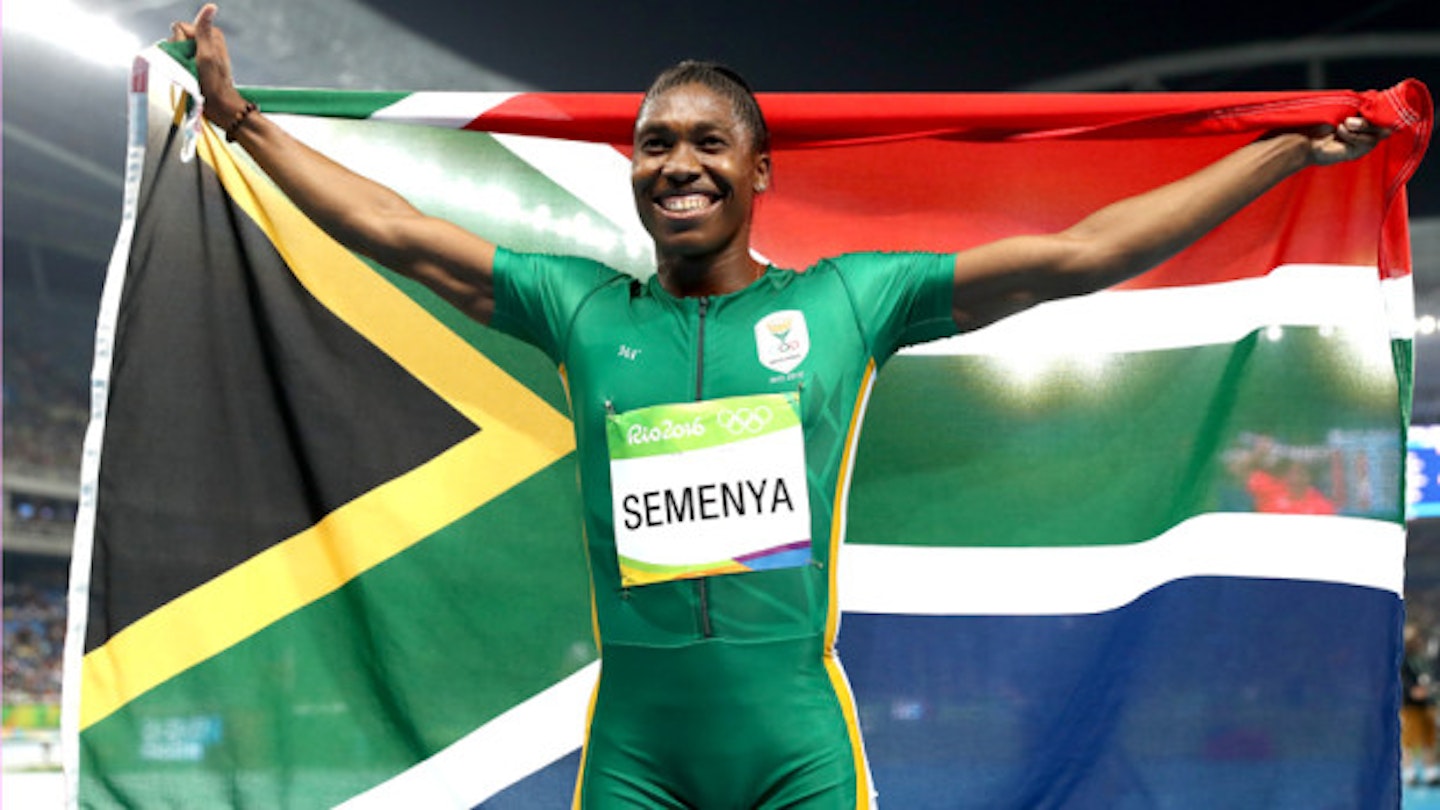Ever notice in the Olympics that the female gymnasts had to perform to music but the males didn’t? That’s just one sign of how the Olympics - which were originally designed for men to compete in - gets it wrong on gender.
After her race in the women’s 800m finals, Great British runner Lynsey Sharp wept, saying: ‘I can’t keep up with what’s going on at the front…The public can see as well, like just how difficult it is’
She’d finished 7th, but Nigel Levine tweeted to congratulate her: ‘Happy for @LynseySharp for coming 3rd in the women 800m’.
You see, many athletes and spectators believe that the winner, Caster Semenya, and silver and bronze winners - Francine Niyonsaba (Burundi) and Margaret Wambul (Kenya) - should not be competing in the women’s ties, due to suspected levels of increased testosterone. The thinking goes that men are banned from taking testosterone ahead of games as a performance enhancer, so why should women with naturally-occurring high levels of testosterone be able to compete against other women?
What is hyperandrogenism?
Caster does have hyperandrogenism - a condition which means that she has three-times higher levels of naturally-occurring testosterone in her body than the average woman her age. But Francine and Margaret haven’t actually been tested - all speculation about their sex (that’s the biological thing, what’s in your pants, to be basic) is down to people pointing and looking at their bodies - which is exactly how gender used to be tested by doctors at sporting contests. The three racers who reached the podium are also black and don’t necessarily conform to western ideals of what a woman should look like. All the stuff Serena and Venus Williams get about looking 'manly'? It's not due to high testosterone, it's due to high bigotry.
Gender verification tests
Today’s gender verification tests are harsh; Dutee Chand, a sprinter for India, was made to undergo one and The New York Timesreported it involved: a blood test, a chromosome analyst, an MRI and a gynecological exam ‘measuring and palpating the clitoris, vagina and labia as well as evaluating breast size and public hair’. Dutee said it made her feel like ‘an animal’.
What makes a woman?
This is the sort of test Caster went through. In 2011, the IAAF introduced a rule saying that women with hyperandrogenism should not be able to compete. However, one study showed that while 13.7% of women athletes had high levels of testosterone, 16.5% of male athletes had low levels of testosterone. The authors said ‘The International Olympic Committee definition of a woman as one who has a “normal” testosterone level is untenable.’ Dutee appealed the ruling and asked to be able to compete again. The ban was overturned and the IAAF now have two years to file scientific evidence - such as proof testosterone really does enhance performance - to justify the ban.
Lynsey Sharp's dissertation on Caster Semenya
So, back to the 800m race. Lynsey Sharp, from Dumfries, has studied hormones and their effects on performance, she even wrote her dissertation for her law degree about hyperandrogenism. There’s no doubt that she understands the nuances of racing. What doesn’t make sense is why she can’t be a little more tactful about the issue. She’s not had to undergo gender testing, or suggestions that she shave off her clitoris and be sterilised so she can pass as a woman (this is something that happened as recently as 2013). Hugging Pole Joanna Jozwik (5th) and Canadian Melissa Bishop (4th), she explained: ‘We know how each other feel, but it’s out of our control, we’re pretty much reliant on the people at the top sorting it out’.
Race in sport
She later tweeted ‘I have tremendous respect for Caster. When asked on live TV, I felt I gave an honest and diplomatic response.’ However, by hugging up with Melissa and Joanna - who’s now gone on to say that she ‘feels like a silver medalist’ and that she’s proud to be the ‘first European’ and the ‘second white’ in the race, drawing a clear connection between racial and sexual stereotypes - Lynsey showed whose side she’s on.
In the face of such a sensitive issue that has seen people’s human rights abused simply because they don’t fit into a neat male/female category, and now sees two athletes facing gender tests, it's clear that the IOC and the IAAF need to find a way to resolve an issue that's clearly having adverse affects on its athletes.
Like this? You might also be interested in:
I'm A Celebrity's Lady Colin Campbell Is Intersex. But What Does That Mean?
Girls Worse Than Boys At The Offside Rule...Because They Play Less Football
Follow Sophie on Twitter @sophwilkinson
This article originally appeared on The Debrief.
